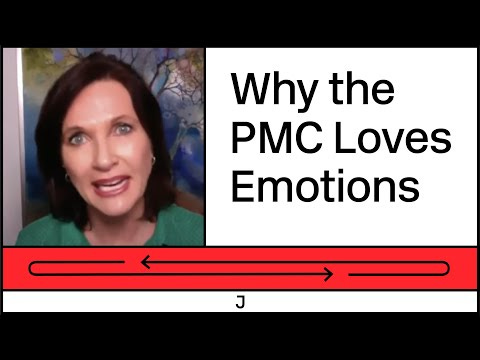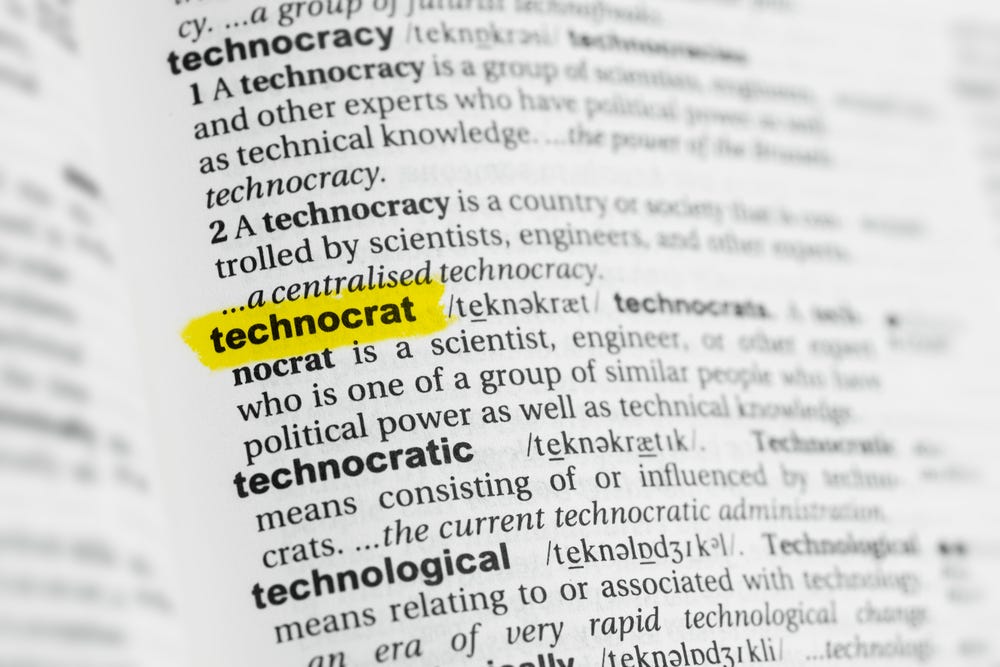The PMC and Labor Aristocracy
When class theory gets fuzzy...
There is much talk on the discourse of the left these days about the “professional-managerial class”. This term was first coined by Barbara Ehrenreich in the 70’s to refer to educated professionals or mental laborers, often with higher-than-average income and access to social capital or influence, which includes lawyers, academics, journalists, and social workers. It is notable that this is in reference to particular professions and to socioeconomic status, rather than class in the sense of relations to production. Those described as the PMC are technically workers, they do not own the means of production or employ others. They still fit into a general definition of the working class. But what makes them distinct is that they may help mediate class relations, that their professions can empower them to tell others what to do as opposed to the average worker’s experience of being told what to do, and they are characterized as elitist towards the rest of the working class.
While the concept of the PMC refers to something that has some truth to it (white collar elitism is a thing and some professions grant one more power than the average citizen), it also really opens a whole can of worms. A conflict between manual labor and intellectual labor is baked into it, which also happens to overlap with conservative anti-intellectual resentments. It technically relates to socioeconomic status and professional specialization, and therefore it is not a class per traditional Marxist definitions of class, which is distinct from socioeconomic status and is rather based on whether one owns the means of production or works for a wage. It also relates to broader questions about the difference between a management and non-management position in any workplace, as management is an empowered position. And long before anyone talked about the PMC, the term labor aristocracy was used regarding concerns about elite vanguardism and hierarchies of power from within the working class.
What does seem true is that socio-economic status and relative power is something that has to be accounted for as a factor in things, that higher status jobs are a high competition domain shielded behind increasingly steep credential requirements, that people often think they are better than others once they have achieved a certain level of professional status and income, that a portion of the “middle class” down-punches toward the poor, and that academic elites can be out of touch with the masses. Exactly how secure one’s position is within capitalism can affect one’s attitude about it as well as the relationship between one’s work and one’s personal passions. Empowered leadership type of roles, the ability to influence society as a journalist for a major publication, or to be a political or economic advisor, is clearly not the same thing as a normal job that one just does to survive and is higher status than a normal citizen.
Nonetheless, attacking the PMC is not the same thing as attacking capitalism, and the concept easily devolves into a conflation between high status workers and the ruling class, or it has been reinterpreted as a culture war axe to grind specifically against anyone who happens to be a middle-class person with liberal sympathies. The way in which the term has been wielded in recent years by Catherine Liu and those picking it up from her tends to be conflationary, in that it can conflate the question of a particular ideology (liberalism) with a socio-economic status (PMC). And Liu jumps from a justified annoyance with technocratic liberalism to taking up culture war narratives, or idealizing the working class as inherently being conservative normies vs the PMC being paternalistic liberals, when in reality the working class is a heterodox mixed bag and some people who fit the definition of the PMC are right-wingers.
What’s more, many of the people who so strongly are focused on the PMC thesis - especially Liu - are themselves members of it and could be seen as giving off an air of elitist academia, and they may be engaged in a competitive careerist game themselves in which they are merely lashing out at their peers. Anyone positioning themselves as the intellectual vanguard of the left is barking up the PMC tree. It can seem like, to some extent, the PMC discourse - and the “anti-woke left” along with it - is reflective of the particular annoyances and pathologies of academics who happen to live in places like NYC and Portland and are surrounded by “the college left”. As such, they specialize in counter-signaling to elite liberals and leftist fads, and they more or less formed their own alternative book industry and club, writing books about cancel culture and wokeness to an increasingly conservative audience and showing up on conservative talk shows as the token “reasonable leftist”, the Colmes to their Hannity.
Indeed, a whole cottage industry around PMC discourse arose among the Jacobin Magazine crowd and their YouTube content, with what could be seen as amounting to reaching psychoanalytic theorization and as part of a counter-signaling campaign in the culture war, where the opposition to the PMC is a stand-in for an ideological battle vs liberal moralism, while liberal moralism is equated with positions of special status. This focus on counter-signaling to liberal moralism, as well as investing one’s energy predominantly into a conflict over questions of status, could itself be seen as an abandonment of class as the basis of politics. Some of what’s discussed in the criticism of liberal moralism is definitely real and problematic, and the Jacobinites often claim to embrace a “class first” view of politics and oppose the culture war, yet they often revert to populist theories, vanilla social democracy, reformism, and sometimes entertain what really are post-left positions and choosing the right’s side of the culture war, either implicitly or explicitly in their rhetoric.
Leninism or the direction in which it developed can also be considered PMC socialism, in its acceptance of an elite of professionals as a stand-in for the working class, while the professional bureaucratization associated with social democracy also engenders a managerial state apparatus consistent with the PMC. The old left-communist and anarchist concerns about labor aristocracy conflicted with this vision of things, instead favoring autonomous worker power and worker’s councils. And if we do take questions of hierarchy within the working class up as a concern, that’s kind of more of an anarchist concern than a traditional Marxist one. It is anarchism that traditionally emphasizes an opposition to “bosses” and management, and criticism of labor aristocracy goes back to Bakunin. Relative to the more contemporary discourse, it is people like Michael Albert who make a broad attempt to solve something similar to what the PMC thesis is about with his theory of Parecon, except he calls it the coordinator class and he suggests a sort of “rotating economy” in which people make the rounds with more empowering types of work. It isn’t clear how practical Albert’s solution is, but he does make an earnest attempt at it.
The reality of deindustrialization and the rise of the service and tech economy also significantly impacts what the working class is today vs what it used to be. The typical job of today that someone just entering the job market can expect is not “productive labor” of the kind that used to be more common and is likely to be a low-level service industry or sales job that is a poverty trap unless you go up through the management chain, and to some extent automation has reduced the need to rely on manual labor. What’s more, even those who fall under the PMC can be in a precarious position, and Barbara Ehrenreich herself admits that the original PMC she described are “in ruins” these days, that they are often forced to re-join the average working class, that the concept doesn’t hold up as well as it used to, and she dislikes the concept of the PMC being wielded as a culture war stick by people these days. And in the context of current events, with the federal government doing mass layoffs in the way it is, a chunk of the PMC could be said to be getting flushed out of the system.
The PMC concept gets stretched too thin in the discourse and has accordingly become a fuzzy concept. Are you really going to act like a school teacher who makes 60k a year is part of some special class lording over society? Or a low-level government worker who pushes papers? A college student with debt? Was my father the PMC? He was an IT worker for a law firm and he did have some elitist attitudes towards blue collars (and thus in a way I have a first-hand reference from my family as to what the resentment about white collar liberal elitism is about), but he also was just a normal middle class worker who eventually got laid off and died in bankruptcy. If one is not careful, the PMC thesis becomes a short-hand for a typical blue collar conservative anti-intellectualism and resentment that doesn’t itself have anything to do with anti-capitalist class politics but is more about the culture war and competing sectors of the labor market, or an agrarian hatred of cosmopolitanism.
On the other hand, liberalism does need to confront its contradictions and dark side. Intellectual elitism and misanthrope, the assumption of meritocratic reward, and an ingrained elite theory of governance, have always haunted it in tension with its humanitarian and democratic pretenses or its other side. And it is true that there are complications with people who happen to be from relatively economically privileged backgrounds putting themselves forward as the do-gooders of society, the helpers of the poor with a savior complex, or “the humanitarian with a guillotine”. There is a certain level of disconnect that can be involved in middle class or rich people positioning themselves paternalistically in relation to those below them or signaling their abstract care without making material differences. Those who directly experience the worst brunt of capitalism will have different experiences and perspectives than such people, and there are limits to intellectualizations of working-class politics in a world where working class people don’t speak that language.
Technocratic liberalism makes a big deal about “expertise” without questioning the failures of those called the experts or the limitations of the systems in which they function. It also implicitly contradicts democracy, because it takes for granted that the masses are naturally unsuited to participate in things or don’t have the right education. Educational credentials and business certifications effectively become the gatekeeping mechanism for real participation in decisions that affect society. The failures of elites and the system are blamed on the voting masses being too dumb or not voting for the right people or not voting enough. It is no wonder that resentment builds up in response to this or that people become jaded about politics. Why would you support people who think you’re too dumb to self-govern? And why would you trust people who have to censor information that contradicts theirs?
Status quo liberalism has lost a lot of trust because of this, and in a way, it doesn’t make sense to focus on the PMC when its legitimacy is kind of in ruins. People often distrust politicians, aren’t fond of social workers, and it’s a long running joke that lawyers are conniving. But it is ultimately not doctors and lawyers, social workers and regular public sector workers who rule over you or set the terms for the law, but the overwhelming power of capital and the entrenched political class itself that does a dance and merges with capital. And the biggest true literal PMC of them all is indeed those who directly manage the state itself at the highest levels. Hence the well-earned distrust of politicians and government. The PMC theory hints at something like this but focuses on what really is a mid-tier status of intermediaries and bureaucrats and people who are well off specialists in the economy, and it gets seized on to misdirect us towards a culture war against middle-class liberals and leftists. But both big capital and tech and the high-level oligarchy of the state have far more power than them.
I find this topic somewhat complex to parse. I don’t think everything outside the category of proletariat vs bourgeoisie is irrelevant, I think that power differentials matter in more general terms and that there has to be an account of how socioeconomic status correlates to things. And I think that “middle class socialism” has limits to its perspective by nature, and that having skin in the game by having experienced some poverty gives perspective. And it’s true that “middle class liberalism” often manifests as people who simply symbolically signal themselves as caring about “helping the poor” and standing up for social justice without actually doing anything, or they have status incentives. At the same time, I generally maintain a broad definition of the working class as anyone who works for a wage or is in a labor contract, and I’d prefer to maximize class unity and would be perfectly tolerant of some people who could be counted as PMC being part of that picture. I don’t think people are evil just because they are upper middle-class or that resentment toward upper middle-class liberals should be the focus of the left’s politics.
The politics of Catherine Liu in particular seems more like populism than socialism or leftism, and she could be seen as giving the game away to conservatives or pulling the narrative into the center-right, by leaning on the idea that liberal elites - with an increasingly stretched or ambiguous definition of that - are the root or crux of the problem. In the contrarian axe-to-grind fashion that the PMC concept is being used by Liu, there is no account of conservative elites and oligarchs to go along with the scathing resentment toward technocratic liberalism, and Liu’s economic views seem to actually terminate in something along the lines of Fordism and a nostalgia for the “post-war liberal consensus” of the 50’s and 60’s, despite her ostensible attachment to Marxism. The fashionable use of PMC is in many ways in line with prior conservative populist theories about elites, which differ from Marxist and leftist class theories.
The conflation of ideology, class, and status in the discourse around the PMC gets nebulous and confusing. The reality is more complex than it would indicate because some of the working poor have liberal views or sympathies, academia in many ways has a null effect on society and just talks to itself or its fandoms, the “petite bourgeoisie” can often have center-right and conservative leanings, and if there is a “brahmin left” there is also a “mercantile right”. In general, people’s attempts to define “the true working class” often get loaded, with cultural categories or different flavors of nationalism substituting for class categories. It may very well be that it is important to emphasize the democratic empowerment of the more populous, regular portion of the working class, and to take heed of the working poor. But simply substituting status competition for class war doesn’t seem to be the answer.
The PMC theory has an element of truth to it but often reduces to a ghost. And sometimes you do have to call the ghost-busters. I ain’t afraid of no ghost.




